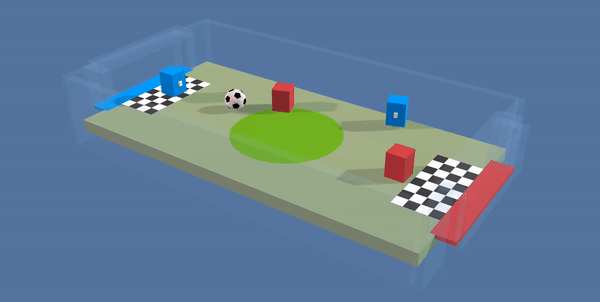Difference between revisions of "Markov Decision Process (MDP)"
m |
m |
||
| Line 21: | Line 21: | ||
* [[Reinforcement Learning (RL)]] | * [[Reinforcement Learning (RL)]] | ||
** [[Monte Carlo]] (MC) Method - Model Free Reinforcement Learning | ** [[Monte Carlo]] (MC) Method - Model Free Reinforcement Learning | ||
| − | ** Markov Decision Process (MDP) | + | ** [[Markov Decision Process (MDP)]] |
** [[State-Action-Reward-State-Action (SARSA)]] | ** [[State-Action-Reward-State-Action (SARSA)]] | ||
** [[Q Learning]] | ** [[Q Learning]] | ||
Latest revision as of 20:27, 13 July 2023
Youtube search... ...Google search
- Reinforcement Learning (RL)
- Monte Carlo (MC) Method - Model Free Reinforcement Learning
- Markov Decision Process (MDP)
- State-Action-Reward-State-Action (SARSA)
- Q Learning
- Deep Reinforcement Learning (DRL) DeepRL
- Distributed Deep Reinforcement Learning (DDRL)
- Symbiotic Intelligence ... Bio-inspired Computing ... Neuroscience ... Connecting Brains ... Nanobots ... Molecular ... Neuromorphic ... Evolutionary/Genetic
- Actor Critic
- Hierarchical Reinforcement Learning (HRL)


Solutions:
Used where outcomes are partly random and partly under the control of a decision maker. MDP is a discrete time stochastic control process. At each time step, the process is in some state s, and the decision maker may choose any action a that is available in state s. The process responds at the next time step by randomly moving into a new state s', and giving the decision maker a corresponding reward R_{a}(s,s')} R_a(s,s'). The probability that the process moves into its new state s' is influenced by the chosen action. Helping the convergence of certain algorithms a discount rate (factor) makes an infinite sum finite.
(Richard) Bellman Equation
- Reinforcement Learning : Markov-Decision Process (Part 1) | Ayush Singh - Towards Data Science
- Reinforcement Learning: Bellman Equation and Optimality (Part 2) | Ayush Singh - Towards Data Science
